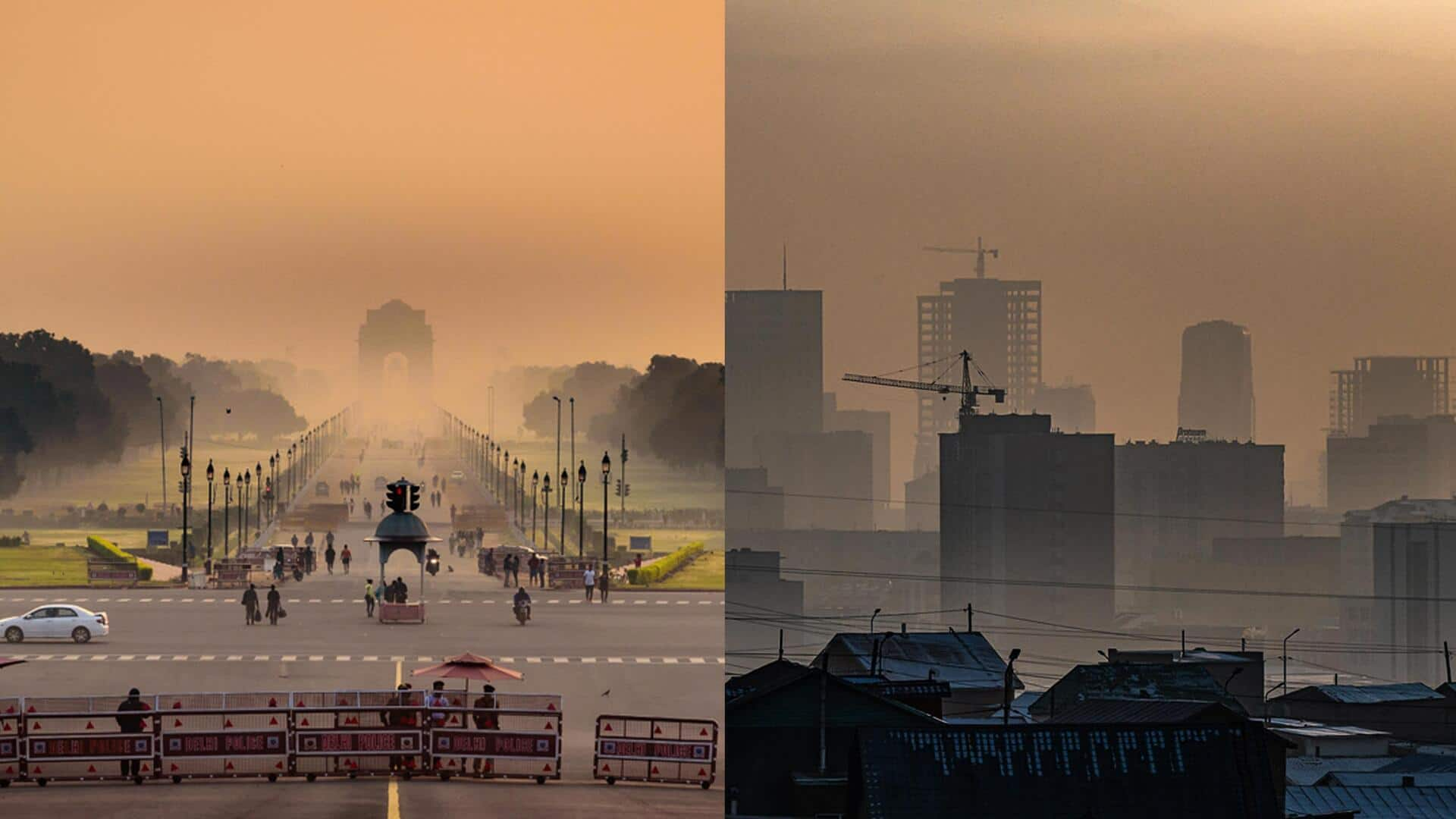
Delhi pollution: High-level meeting today as AQI turns 'severe plus'
What's the story
A thick layer of smog continued to engulf Delhi as the air quality in the national capital remained in the "severe plus" category on Monday for the second day. The city's average air quality index (AQI) was 471 on Monday morning, according to the System of Air Quality and Weather Forecasting And Research (SAFAR) data. Furthermore, Delhi Environment Minister Gopal Rai called a meeting on Monday over the implementation of the Graded Response Action Plan (GRAP) Stage IV.
Context
Why does this story matter?
As Delhi remains the most polluted Indian city, a recent study claimed Delhiites were on track to lose 11.9 years of life expectancy due to toxic air. A combination of factory emissions, vehicle emissions, and smoke from stubble burning increases Delhi's pollution levels significantly every winter. Amid the increasing AQI, the Aam Aadmi Party (AAP)'s Delhi government recently banned the manufacturing, storage, and selling of firecrackers and the entry of diesel buses from other states, too.
Details
Centre's panel invokes GRAP Stage IV in Delhi
Amid Delhi's deteriorating pollution levels, a central panel on Sunday activated all emergency air pollution-controlling measures mandated under the final Stage IV under the GRAP. Notably, GRAP Stage I comes into effect when the AQI is between 201-300 (poor category), and Stage II becomes operational at AQI 301-400 (very poor category). Furthermore, Stage III is activated between AQI 401-450 (severe category), and Stage IV becomes effective when the AQI is above 450 (severe plus category).
Twitter Post
Visuals of smoggy Monday morning in Delhi
#WATCH | Air quality across Delhi continues to be in the 'Severe' category as per the Central Pollution Control Board (CPCB).
— ANI (@ANI) November 6, 2023
(Visuals from Ghazipur border, shot at 6:47 am today) pic.twitter.com/8Upe2Jzh8R
What Next?
High-level meeting to discuss GRAP Stage IV implementation
The GRAP can be defined as a series of emergency measures that come into effect in the Delhi-National Capital Region (NCR) region when its air quality hits a particular threshold to prevent further deterioration. While the GRAP was first enforced by the Ministry of Environment, Forestry, and Climate Change in 2017, it is now implemented by the Commission for Air Quality Management (CAQM).
Insights
Primary schools closed in Delhi until November 10
Meanwhile, Delhi Education Minister Atishi announced on Sunday that primary schools will remain closed until Friday (November 10) amid the deteriorating air quality in the national capital. Taking to X (formerly Twitter), the Aam Aadmi Party (AAP) leader also revealed that schools in Delhi would be allowed to offer students of Classes 6 to 12 the opportunity to switch to online classes.
Know more
How stubble burning in Punjab, Haryana, UP impacts Delhi's AQI
Delhi's air pollution usually peaks between November 1 and November 15 every year as farmers in Punjab, Haryana, and Uttar Pradesh increase stubble burning. Meanwhile, the Indian Agricultural Research Institute (IARI) revealed it recorded 4,160 farm fires until Sunday, the highest this season. Significantly, Punjab alone reported 3,230 stubble-burning incidents, which is the state's highest in a single day for this season. However, Rai earlier blamed farm fires in Haryana and UP, and not the AAP-ruled Punjab, for deteriorating AQI.